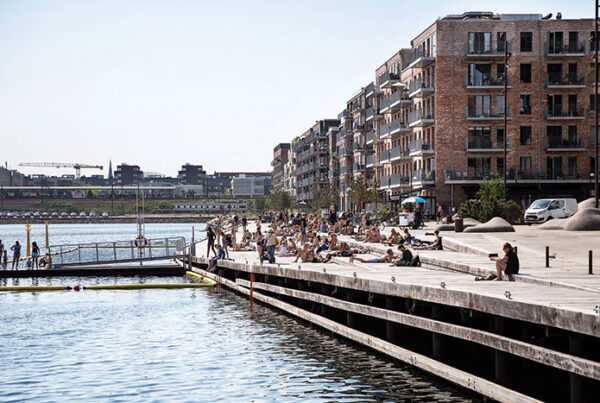Environmental, social, and governance (ESG) matters are increasingly core concerns for the real estate industry, according to top industry executives speaking during the “ESG: The Strategic Perspective” session Wednesday at the Fall Meeting.
“Coming out of the COVID crisis, ESG is absolutely on everybody’s agenda in Europe,” said Anne Kavanagh, chief investment officer and member of the management board at PATRIZIA AG, who joined the panel remotely from Germany. “The E and G have always been on the agenda. The S has finally arrived, especially post-COVID,” particularly regarding issues of inequity and affordable housing, she said.
So, how do you turn increased attention into a business case?, asked moderator Billy Grayson, executive director for ULI’s Center for Sustainability and Economic Performance.
“What’s changed is that a real convergence of stakeholders has happened,” said David Steinbach, chief investment officer at Hines. Cities, investors, tenants, and even the company’s employees are focusing on ESG, especially on how to deal with climate change and reduce carbon emissions. In the past, the industry looked at programs such as Energy Star and Leadership in Energy and Environmental Design (LEED) as boxes to be checked. Now, “we’re flipping the narrative,” Steinbach said. “Let’s make a business out of this and really lean into it.”
“Everybody we care about cares about ESG,” said Owen Thomas, chief executive officer at Boston Properties and immediate past global chairman of ULI.
Customers care, he said, and not just tech companies. For example, Boston Properties is working with an asset management firm that has as its number-one requirement that a building be net zero carbon. Institutional shareholders are asking about ESG, he said, and lenders are paying attention—even offering slightly lower rates on green bonds. Communities and employees care, too, he said.
Caring alone does not solve the issues, though. “To really get to net zero, we need green power,” Thomas said, as well as sustainable sources of construction materials such as steel and concrete.
“Some of these problems are really complicated, technically complicated,” said Steinbach, who said he expects technical solutions to emerge for some environmental problems in coming years. Some will come from inside the real estate industry; some will come from specialized “industry-agnostic” experts, he said. “Living in a post-carbon world is probably the biggest business opportunity we will see in our lives.”


